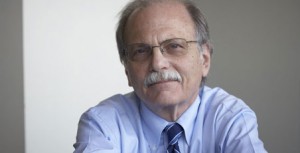By David Chiang (entering class of 2009)
This past summer, the Tisch Cancer Institute (TCI) was given the prestigious award of NCI Cancer Center designation, one of 69 cancer centers with this designation in the U.S. The designation, a P30 cancer center support grant, acknowledges TCI’s strength as a center that integrates lab-based science that interfaces with translational research and clinical trials. Sinai joins four other NCI-designated Cancer Centers in New York (Albert Einstein, NYU, Memorial Sloan Kettering, and Columbia).
This award was not easy to come by. The grant application itself took some time, totaling over 1000 pages, followed by a site visit, and then a final decision by the National Cancer Advisory Board. TCI has four main scientific programs which it highlighted in the grant: Cancer Immunology (led by Drs. Nina Bhardwaj and Miriam Merad), Cancer Mechanisms (Drs. Ramon Parsons and Ross Cagan), Liver Cancer (Drs. Scott Friedman and Josep Llovet), and Cancer Prevention and Control (Drs. Paolo Buffetta and William Redd).
Currently, Sinai has ~150 clinical trials ongoing for cancer therapeutics alone, which reflects its large and diverse patient volume. In fact, the number of cancer cases being seen here has tripled over the last five years. Moreover, what makes Sinai unique is the geographic closeness of clinicians and scientists. The Ruttenberg Treatment Center, for example, is located on Hess 3rd and 4th floors. TCI’s research floors are on Hess 5th and 6thfloors, which streamline clinician access to research floors and vice versa. This integration of science and medicine “is work,” according to TCI director Dr. Steven Burakoff, “but it’s working.”
Dr. Burakoff’s goals following this designation include applying for an additional designation known as Comprehensive Status (of which there are only two other designated centers in New York) and focusing on three other goals for cancer treatments: basket trials (treatment of the gene mutation in cancer rather than the anatomical location), immunotherapy (activation of the immune system against the tumor), and iterative genomics (investigations of the genetic markers of tumors and using those to correlate to prognosis and therapeutic predictions). And yet, this is only the beginning. Burakoff’s vision includes an expansion of cancer care and therapeutic development throughout Mount Sinai’s hospital network, so that all patients have the chance to reap the benefits of the latest in cancer research.
“The vision is simple,” Burakoff said, “it’s to cure cancer.”
The Tisch Cancer Institute was established in 2008, and under the direction of Dr. Steven Burakoff, has grown to include over 130 investigators who are working to conduct basic, clinical, and translational research to discover better cancer therapeutics.

